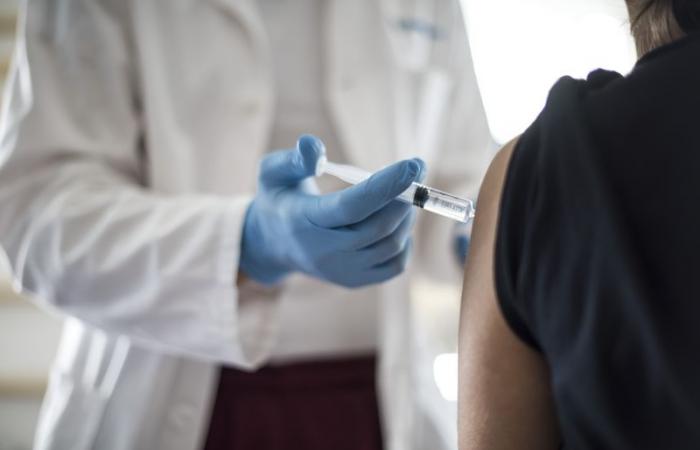The world’s first personalized melanoma messenger RNA vaccine, which also has the potential to stop lung, bladder and kidney cancer, is being tested in an international phase 3 clinical trial, including British patients , reports DPA/PA Media on Friday.
VaccinationPhoto: Alessandro Melis | Dreamstime.com
The “revolutionary” vaccine, which offers hope for a cure, is customized for each person in just a few weeks, notes Agerpres.
It tells the body to “hunt” cancer cells and prevent the lethal disease from returning.
Following the phase 2 study of this vaccine, in the development of which the pharmaceutical companies Moderna and MSD (known as Merck in the United States and Canada) are involved, a considerable reduction in the risk of cancer recurrence was found in patients diagnosed with melanoma .
A final stage of testing the vaccine, phase 3, has been launched and is being led by University College London Hospitals NHS Foundation Trust (UCLH).
“It’s a very finely tuned instrument”
The coordinator of the study, Dr. Heather Shaw, said that the vaccine has the potential to cure people diagnosed with melanoma and is also being tested for other types of cancer.
“It’s one of the most interesting things I’ve seen in a long time. It’s a very fine-tuned instrument,” Shaw said.
The vaccine is an individualized neoantigen therapy (INT) and is sometimes referred to as a cancer vaccine.
It was designed to stimulate the immune system to fight back against a specific type of cancer in the patient.
Known as mRNA-4157 (V940), the vaccine was designed to target neoantigens, tumor antigens specific to each individual patient. These are tumor markers that can be recognized by the immune system.
The vaccine can recognize up to 34 neoantigens and activates an antitumor immune response based on the unique mutations in each cancer case.
How the cancer vaccine is made
To create the vaccine, a tumor sample is surgically removed, DNA sequencing is performed and artificial intelligence is used.
The result is a personalized cancer vaccine specific to each patient’s tumor.
“This is very similar to individualized therapy and is much smarter, in some ways, than a vaccine. (The treatment) is personalized for the patient – you can’t give it to the next patient because you don’t expect it to work. They may have some new antigens in common, but they may have their own very special new antigens that are important to their tumor and so it’s really personalized. The ultimate goal is to cure patients of their cancer,” Shaw emphasized.
According to phase 2 data published in December, people with severe melanoma who received the vaccine, given at the same time as MSD’s cancer drug Keytruda, had a nearly half (49%) reduced risk of death or of cancer returning after three years, compared to people treated only with the anticancer drug.
Patients received one milligram of mRNA vaccine every three weeks for up to nine doses and 200 milligrams of Keytruda every three weeks (up to 18 doses) for about a year.
Messenger RNA technology, a key element in the pandemic
Messenger RNA technology has proven to be the key element in the fight against the COVID-19 pandemic. Moderna, along with Pfizer-BioNTech, were the first pharmaceutical companies to offer a vaccine against COVID-19 using messenger RNA technology.
The international phase 3 study includes a wider range of patients and hopes to recruit around 1,100 people. These will include 60-70 patients from eight centers across the UK, including London, Manchester, Edinburgh and Leeds.
According to Merck, the phase 3 study will be tested on patients in more than 25 countries.
This therapeutic combination is also being tested in lung, bladder and kidney cancer.
According to Shaw, side effects include fatigue and pain in the area of the arm where the injection was made.
Professor Lawrence Young, from the University of Warwick, said “this is one of the most exciting developments in modern cancer therapy”, adding that “interest in cancer vaccines has been rekindled in recent years by a deeper understanding of how in which the body controls immune responses and through the emergence of mRNA vaccines”.
photo source Dreamstime
Tags: personalized vaccine skin cancer entered final phase testing
-





